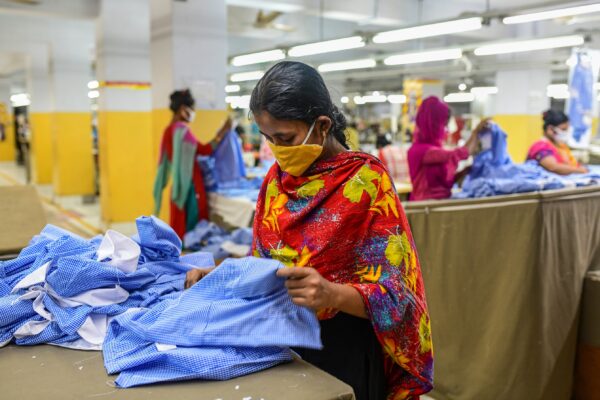This website uses cookies so that we can provide you with the best user experience possible. Cookie information is stored in your browser and performs functions such as recognising you when you return to our website and helping our team to understand which sections of the website you find most interesting and useful.

Nine years ago, a fatal fire at the Ali Enterprises garment factory in Pakistan killed 258 workers and injured hundreds more. The factory had been certified as “safe” by a social auditing firm, despite serious and evident risks, mere weeks before the deadly fire. Today, 15 organisations are urging EU policy-makers to address systemic issues related to the social auditing industry.
Failures of social auditing firms have resulted in countless human rights violations and loss of life. For example, the Rana Plaza facilities had been audited by accredited auditors just months before the garment factory’s collapse in which over 1,100 people died and thousands more were injured. Although auditors had not been tasked with assessing the structural integrity of the building, their report described the construction quality as being “good”.
Such cases are not isolated incidents but examples of systemic failures of corporate-controlled social auditing. Auditing companies WRAP and Bureau Veritas conducted audits of the operations of two Chinese companies in the Xinjiang Uyghur Autonomous Region, but allegedly found no evidence of forced labour. Both companies have been implicated in human rights abuses against Uyghurs by US authorities.
Similarly, the world’s largest rubber glove company, Malaysia-based Top Glove, has been the subject of a Withhold Release Order by the US Customs and Border Protection, which bans the importation of rubber gloves produced by two of its subsidiaries using forced labour. Yet, Top Glove factories have been issued certificates from auditing companies Intertek, TÜV SÜD, UL, Bureau Veritas, SGS and others, even as a 2018 investigation had found that migrant workers producing for Top Glove worked in conditions that meet the ILO’s criteria for modern slavery.

Workers in Malaysia wait in line behind barbed wire. Photo by Shutterstock / Mickey12.
In the case of Ali Enterprises, a producer of jeans for German retailer KiK, the factory had been certified under the internationally recognized SA8000 standard by the Italian auditing company RINA Services. This assessment was made by auditors who had reportedly never even visited the building.
Despite this, an attempt to hold RINA legally accountable in Italy failed. Most recently, RINA refused to sign the mediation agreement after a lengthy process at the Italian OECD National Contact Point.
The case has clearly exposed glaring accountability gaps, as well as lack of effective remedy for workers and communities, because nine years on, affected families are still having to fight for justice.
Civil society groups and labour unions are calling on European Commissioners, members of the European parliament and national governments to ensure social auditors’ liability and to address issues related to social auditing and certification practices with the upcoming legislation on human rights and environmental due diligence and corporate accountability.
As the open letter points out, this means giving victims of corporate abuse access to justice and remedy, including in cases where victims have sustained harm as a result of negligent and faulty audits.
Furthermore, the letter calls for the upcoming legislation to exclude social audits and certification as adequate proof of due diligence in a court of law or in any other relevant enforcement actions. If a company was able to defend claims of human rights harm solely through its use of social audits and certifications, corporate legal accountability would be seriously undermined.












